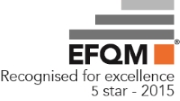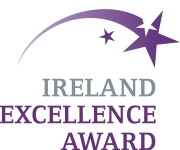Date: 03/09/2013
Chairperson of Ashton Community Trust (ACT) Michael Liggett; ACT Head of Victims Services Irene Sherry; Head of Arts & Youth Development Katrina Newell; Sinn Féin MEP Martina Anderson; EU DG Regio Tamara Pavlin; ACT Chief Executive Paul Roberts; Director of Education Nerve Centre John Peto; EU DG Regio Stephen Langley and ACT Head of Employment & Training Services Pat Boyle.
A delegation led by the North Belfast based social regeneration charity Ashton Community Trust met with high ranking European Union officials in Brussels to progress its explorations of sustainable funding opportunities.
The team which included Ashton Chief Executive Paul Roberts and Irene Sherry, Head of Victims Services were invited to the home of the European Union in Brussels by Sinn Féin Member of the European Parliament (MEP) Martina Anderson.
The MEP and her team in Brussels planned the fact finding visit on Tuesday May 28 2013 to assist organisations like Ashton learn more about accessing EU funding for development.
Ashton Community Trust has years of experience in delivering PEACE programmes and are currently delivering a PEACE III project ‘Exploring the Past Together For a Better Future’ in areas hit hard by the legacy of the conflict. Ashton Community Trust is also behind Ireland’s first Fablab in conjunction with the Nerve Centre in Derry as a result of PEACE III funding.
The high level intensive talks involved a range of officials attached to several of the European Commission’s Directorate General (DG) departments. Officials included: Tamara Pavlin and Stephen Langley from DG Regio; Alastair Campbell Desk Officer NI Executive; Dr Román Arjona Chief Economist DG Research & Innovation; Stephen Duffy DG Regional and Urban Policy; Dennis Crowley DG Employment and Social Affairs and José Antonio DG for Regional and Urban Policy. The group also met with the Head of the Office of the NI Executive in Brussels Gerry Mulligan (ONIEB).
The meeting with Tamara Pavlin and Stephen Langley was extremely useful, especially for Ashton’s senior managers who are currently managing PEACE III Programmes.
“In relation to this PEACE III programme we discussed how important the funds were and how necessary they were in carrying out much-needed peace building work especially in places where the conflict hit hardest. There were honest conversations too about the extensive administrative burden and discussions about how that could be alleviated in the future,” Irene Sherry said.
“An overview of the priorities and outputs associated with the forthcoming PEACE IV programme was also insightful. At the meeting the message from EU officials seemed to be that the new programme will be more emphasised towards allocating funds that complement or act ‘in addition to’ existing initiatives.”
Ashton Chief Executive Paul Roberts said: “This proved to be an extensive and productive series of meetings with European Union officials who are best placed to strategically inform social enterprises like Ashton to grow sustainably into the future.
“Now it’s about bringing this information back into communities like North Belfast and Derry where we can sit down and investigate ways in which we can access opportunities to benefit individuals in area where such opportunities can benefit most. We are grateful to Martina and her team in Brussels for organising these meetings which undoubtedly have helped us gain more information about future EU funding pathways.”
Sinn Féin MEP Martina Anderson said she was delighted to help both the Nerve Centre and Ashton especially in their latest PEACE III venture Fablab.
“I was pleased to be able to arrange meetings here in Brussels for the Nerve Centre in Derry and the Ashton Centre in North Belfast so that they can familiarise themselves with the full range of opportunities that are available to them from the next round of EU Funding.
“The Fab Lab concept, as developed by MIT and deployed at over 200 sites internationally, presents an unprecedented opportunity for the island of Ireland to harness the capacity of digital fabrication to build skills for employability; develop local models of entrepreneurship; build social capital and establish real and meaningful regional and transnational networks of practical collaboration and interaction.
“I believe that the Nerve Centre and the Ashton Centre are both well placed to open up the FabLab’s potential to assist established local businesses as well as those that are only in the conceptual stages of product and staff development through sharing of knowledge between businesses and community users of the Labs. I am confident that Ashton and the Nerve Centres are, with the proper support and financial resources more than capable of joining this international network.”






